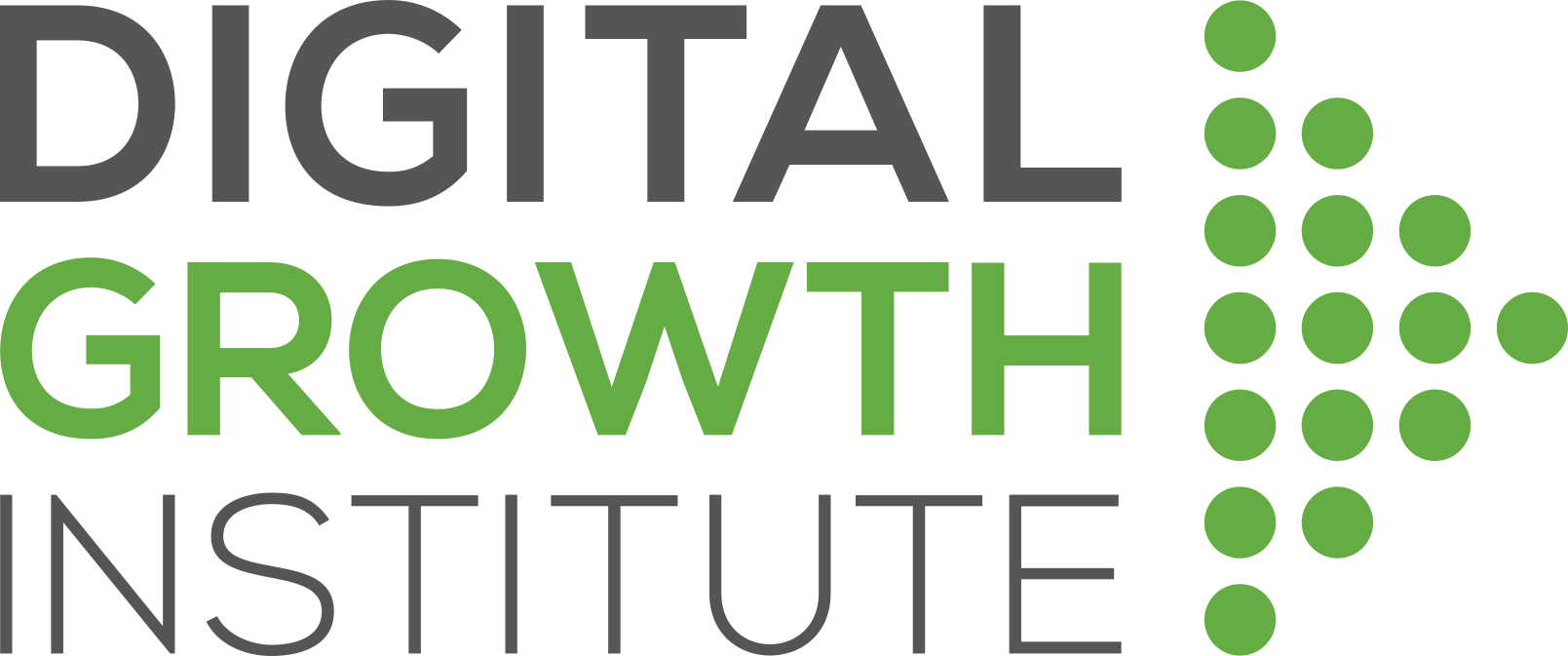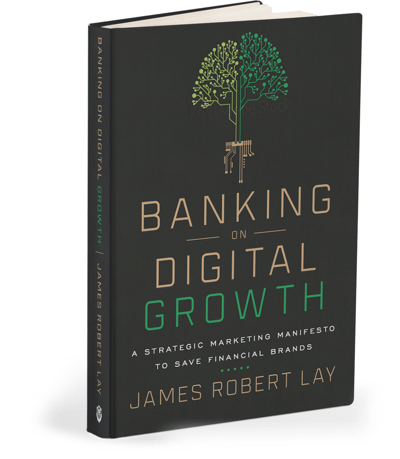“The longer we can't go out, the longer they say, ‘Any person you meet could be a carrier of the virus,’ the longer that goes on, the more this transformation becomes habitual.” -Jim Marous
The world as we know it has turned upside down. Changes are happening at an exponential pace. Jim Marous, owner and CEO of the Digital Banking Report, shared with James Robert on this episode of the Banking on Digital Growth Podcast, it’s time to embrace change, take risks, and disrupt yourself.
As one of the most influential people in banking, Jim has been an advocate for embracing change, taking risks, and trying new things to stay relevant.
A Growth Mindset
We are quite familiar with intelligence (IQ) and even emotional intelligence (EQ). But today, we need to be talking about our adaptability quotient (AQ). How can we become more adaptable?
Escape your fears.
Jim attributes fear as being the biggest hindrance to adaptability. There is a risk we are faced with every time we step into new territory. While it's scary, it's also the most exciting time to follow your passion and grow.
This is a chance to do something like we have never done before.
Over the last several months, we have noticed change across industries and not only in financial services. Sometimes it helps to look outside the industry to learn from others and how they are transforming in this post-COVID world. One change many of us have experienced, albeit not directly, is the change in education. If it’s possible for our young children to adapt within a matter of weeks to a completely different learning style, one that is disruptive, unknown, and confusing, what is stopping the rest of us?
Fear.
There's big cultural transformation in the works as many people have found they are able to continue to do their jobs remotely. There's going to be a lot of implementations with all of this disruption, all of this transformation trickling back into the financial services space. And so, now is the time to really embark on a new journey, go in a different direction, because we have time.
We didn't see this coming. We didn't know what was going to happen. But Jim highlights that humans, across the globe, are adaptable people. We're starting to see a new norm that's exciting and has loads of opportunity to capture.
Jim points out that we have already seen Fintech and digital banking adaptation has gone up. The longer consumers bank remotely, the less likely it will be for the trend to reverse, if at all.
“It's going to change marketing. It's going to change innovation. It's going to change digital delivery. It's going to change mentalities. And most importantly,” Jim emphasizes, “it's going to change the ability for people to be entrepreneurs, and intrapreneurs, to be able to completely open their mind to new potential that maybe we couldn't foresee just four weeks ago.”
How Do We Adapt to Change?
As James Robert bluntly puts it: Take a cold shower. It will teach you to live in the moment of fear, and then very quickly your mind starts to relax.
With change comes opportunity.
There are opportunities, from an innovation standpoint, for financial brands.
Jim observes that most financial institutions are not prepared for this digital reality. Whether they are ill-prepared organizationally or culturally, they are at a tremendous disadvantage. There are those that claim to have digital account openings, but the reality is they still require the customer to visit the branch for one reason or another.
A financial brand might lack the capability, but that shouldn't stop them from moving forward, James Robert explains. It shouldn't stop them from innovating because the opportunity is to either buy that capability, partner with that capability, or build that capability.
People are now going to embrace distance, embrace content, and embrace digital at scale like never before. Whether you’re a big or small organization, you can connect your financial brand’s subject matter experts with the right segments using digital.
But growth does not come from digital and technology alone.
It's also about humanity. It's the digital experience plus the human experience that's going to lead to growth going forward.
Data Talks
“If there's ever been a time when data talks, it's right now, and data is yelling,” says Jim. “Show [people] that you're looking, that you know them, understand them. And you're going to reward them for the relationship they've had over the years.”
James Robert reinforces this idea by suggesting financial brands look at checking accounts and deposit data to identify those whose deposits have dropped off significantly within the past two to three months. Then look at the people that have a mortgage and proactively reach out.
"Bank of America Lets 50,000 Customers Skip Their Mortgage Payments."
We live in a headline world. Take advantage of the data proactively. Give consumers the prescription for the pain that they might be experiencing.
Another simple approach to build a digital community, as Jim shares, is to offer monetary incentives to account holders that can show the most creative way to thank our medical teams. Before long, there can be four or five houses in a neighborhood, getting their families involved, all generating awareness for your brand by connecting physical and digital communities around a common cause and purpose. All of a sudden, the social media in your community will be overwhelmed pictures and stories of local health care heroes.
What Will You Do With Your Super Bowl Moment?
Our healthcare workers are the heroes fighting the good fight on the front line. With COVID-19 all around us, this is the Super Bowl for doctors, nurses, and anyone in healthcare.
What's coming next?
The financial health crisis which is already here but has the potential to get much worse for people before it gets better.
This is going to be our Super Bowl when we need to step up as financial brands, as banks, as credit unions, and really come to the aid of people.
Who's going to show your community there is someone really looking out for people as an individual or as a small business?
It's those institutions that really believe in and commit to caring for and improving consumers' financial health and wellness going forward.
Now is the chance to transform yourself personally.
Now is the chance to transform your financial brand.
Now is the time to go after what you believe in because you have time.
Transform who you are, what you do, either in your bank, in your credit union, or outside both.
Go at it aggressively.
Face your fears head on.
Do the hard work today others are not willing to do.
And guide others towards a bigger, better, and brighter future.
This article was originally published on July 9, 2020. All content © 2024 by Digital Growth Institute and may not be reproduced by any means without permission.





